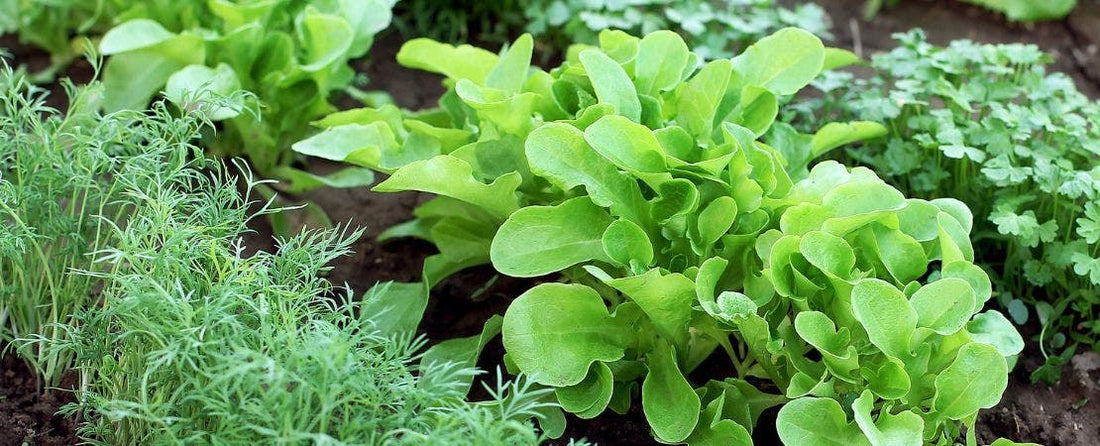
4 Reasons to Shop Only at Non-GMO Seed Companies
Share
Heirloom, Organic, and Always Non-GMO Seeds, We’re Going to Break It Down for You
Let’s start with the basics. When choosing seeds for your garden, finding a company that has only non-GMO seeds is one of the best ways to ensure a diverse, sustainable, and high-quality garden. Because by supporting non-GMO seed companies you are investing in the future of gardening, food security, and environmental health.
Non-GMO seeds have not been genetically modified in a laboratory. Instead, they have been cultivated through traditional breeding methods that prioritize natural plant adaptation, biodiversity, and seed integrity. While large-scale agriculture often relies on genetically modified crops, home gardeners have the unique opportunity to grow plants that are free from genetic modification.
Why Choose Non-GMO Seeds?
1. Protecting Seed Diversity and Natural Resilience
One of the leading concerns around GMOs is the loss of seed diversity. When commercial farms prioritize genetically modified crops, traditional seed varieties are pushed aside, reducing the genetic pool that has been developed over centuries. This lack of diversity makes crops more vulnerable to disease, pests, and climate changes.
Non-GMO seed companies, like Park Seed, help preserve this biodiversity by offering a wide range of heirloom and open-pollinated seeds. These varieties are often more resilient and better suited to diverse growing conditions, giving gardeners more choices and ensuring that future generations will continue to have access to strong, healthy plants.
Some of the most popular non-GMO vegetable seeds available at Park Seed include tomatoes, cucumbers, peppers, carrots, and bush beans. For flower gardeners, top choices include rudbeckia, echinacea, zinnias, cosmos, and sunflowers. Herb lovers can grow favorites like basil, dill, cilantro, thyme, and oregano—all from non-GMO seed sources.
2. The Value of Heirloom and Open-Pollinated Seeds
Heirloom seeds are traditional varieties that have been passed down through generations, coveted for their unique flavors, colors, and adaptability. Unlike hybrids or GMOs, heirloom seeds produce plants that closely resemble their parent plants, which are popular for seed saving.
Open-pollinated seeds, on the other hand, are pollinated naturally by wind, insects, or birds, helping them keep their genetic diversity and adaptability. These seeds allow gardeners to collect and replant seeds season after season, ensuring a sustainable and self-sufficient gardening experience.
By choosing heirloom and open-pollinated seeds you’re growing in a traditional way while encouraging biodiversity in your own garden.


3. Supporting a Healthier Ecosystem
Genetically modified crops are often designed to tolerate heavy herbicide applications, which can negatively impact soil health, beneficial insects, and local wildlife. Overuse of chemical herbicides can lead to the development of superweeds and superbugs that require even stronger chemicals to control, creating a harmful cycle for the environment.
By choosing non-GMO seeds, you are supporting agricultural practices that work in harmony with nature. Non-GMO gardening encourages natural pest control, pollinator-friendly habitats, and healthier soil ecosystems, all of which contribute to a more sustainable and thriving environment.
4. Ensuring Transparency and Food Safety
When you grow non-GMO plants from seed, you have complete control over what goes into your food. It’s no surprise then that many home gardeners prefer to plant non-GMO varieties to ensure that their fruits, vegetables, and herbs remain as natural and unaltered as possible.
Non-GMO seed companies provide transparency in sourcing, storing, and breeding methods so gardeners can make informed choices about the food they grow and eat.
When you buy from a non-GMO seed company, you are supporting independent seed growers and businesses that prioritize ethical farming and sustainability. These companies work to keep seeds accessible to all gardeners to ensure that future generations can continue to grow and enjoy a diverse variety of plants.
The Best Way to Grow with Non-GMO Confidence
By choosing to shop with a non-GMO seed company you are making a conscious decision to protect biodiversity, support a healthier environment, and ensure greater food security. All seeds are non-GMO at Park Seed plus they are reliable and high quality, just what gardeners are looking for. Find the best heirloom vegetables, colorful flowers, or fragrant herbs, and non-GMO seeds for successful growing.
Your garden reflects the choices you make. By planting non-GMO, heirloom, and open-pollinated seeds, you are cultivating a healthier future for yourself, your family, and the planet. Start your journey toward sustainable gardening today by choosing seeds that align with your values and vision for a thriving, natural garden.



